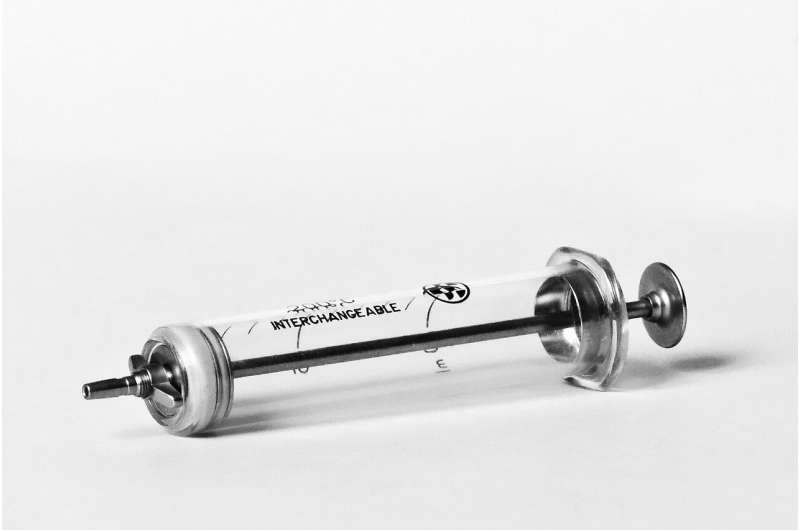Researchers develop IV injection treatment for sepsis


Purdue University researchers in the College of Pharmacy and College of Engineering are developing a patent-pending treatment that could impact millions of American lives each year.
The Centers for Disease Control and Prevention reports that at least 1.7 million American adults develop sepsis annually; almost 270,000 die as a result. One in three patients who die in a hospital has sepsis. Sepsis occurs when the body’s immune response to an infection or injury goes unchecked. Chemicals or proteins released into the blood lead to leaky blood vessels, inflammation and widespread blood clots. These conditions lead to impaired blood flow, which can cause organ damage and death.
Yoon Yeo leads a Purdue team developing biocompatible nanoparticles that treat sepsis systemically through intravenous injection. Yeo is a professor and the associate department head of industrial and physical pharmacy in the College of Pharmacy. She also is a professor in the Weldon School of Biomedical Engineering. The research was published in the Aug. 2021 issue of Science Advances.
Yeo said Polymyxin B, a traditional antibiotic, can inactivate endotoxins that cause a specific type of sepsis, but it may be too toxic for systemic application. For sepsis therapy, it mostly has been tested in extracorporeal blood cleaning, which is cumbersome and time consuming.
“Our nanoparticle formulations reduce dose-limiting toxicity of Polymyxin B without losing its ability to inactivate endotoxins,” Yeo said.
In mouse models of sepsis, 100% treated with the Purdue nanoparticle were protected from excessive inflammation and survived.
Source: Read Full Article